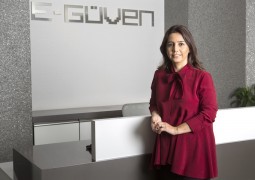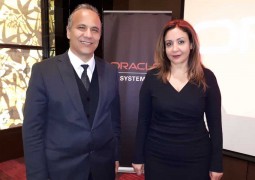Business Analyst of the Future – Chris Matts
by 0

“The successful BA of future is going to be a T-shaped individual. They need to have broad knowledge BA skills, UX skills, UX design and product management in the vertical leg. And have deep specialist competencies in the horizontal leg. There will be jobs that expect you do all of those things. Today shallow knowledge of everything, the in-depth knowledge of the BA skills is essential.”
At the BAIstanbul 2016, I had a nice conversation with Chris Matts, Agile Transformation Coach at Investment Banking on the Business Analyst of the future.

How do you define the business analysts of the future? What is changing?
I think there are two aspects which are the actual skill set and the role. I believe that the business analysis is a skill set and a business analyst has to have those skills. Regarding the role, two big changes are coming in. One of them is being agile, doing things faster and faster. It is about actually driving the same value in a quicker way, which you can achieve adapting the technics like getting information to the developers faster. Another challenge is the customer. Previously providers have just told customers what they were going to get and the customer just accepted. It changed with the advent of the internet, which brought customers the opportunity to choose. We have to understand the customers’ needs and put them in the central. That is a tremendous opportunity for BAs. It‘s a chance to learn new skills like UX research, UX design, and product management. The successful BA of future is going to be a T-shaped individual. They need to have broad knowledge BA skills, UX skills, UX design and product management in the vertical leg and deep specialist competencies in the horizontal leg. The jobs will expect them to do all of those things. Today shallow knowledge of everything and the in-depth knowledge of the BA skills are essential.

What are the management requirements of today’s transforming era?
I think the attitude to the customers is also pervasive with BAs. People are self-motivated. They do not want to be told how to do their work. They organize themselves to do the job. Best employees want the choice to select the companies to work for. It can be a challenge for many people and corporations.
You shared the square of Dave Snowden, Cynefin. What are the most critical factors in it?

For many years I was critical about that framework because I have not understood the value. For me the most valuable parts of it to know the difference between knowable and unknowable things. In particular, the complex and challenging spaces are thought the same, but it is important to understand that things can be answered and unanswered. The strategy we adopt for them is different.
Do you say “if we know the reason, it is complicated and if we don’t know the reason, it is complex”?
What it means regarding strategy, if the outcome is knowable and advanced, we can speak to an expert, do analysis and we can test. For example, increasing the conversion rate of people, who convert from a free version to the paid version of the product. That is not knowable what you can expect in advance. You have to try a lot of little experiments to find it out. It is different from the situation where we use experts. And analysts use strategy to solve problems which we’re doing in compact space versus many safety fail high prophecies. So, you know some of the stuff you do is not going to work, but it is about learning your customer.

Is it a “try and see” strategy?
Yes, ‘try and see’ will probably be in chaos phase. In a complex space, we have enough information to make a good guess, but it is like 60% chances getting it right rather than a 100% chance. That’s one of the big problems culturally; people are used to saying ‘that is %100 right. I have done my job,’ but you cannot do it while working with customers’ needs.
What are the success factors of being a good BA? Today professionals need to deliver faster with the same/higher quality. Does it mean working harder or what kind of technics BAs need to use?
I think a good BA always keens to learn new technics. It also depends the culture in the companies, whether they encourage people to learn new things and make it safe to fail. A lot of learning is doing wrong rather than just reading books. We can read a book and learn about an idea, we only really understand it when we implement it. If we are in a culture where failure is not tolerated, we’re not going to learn. Culturally tolerating failure improves creativity. In some cases, they need to create their technics.
Thank you very much.
My pleasure.





